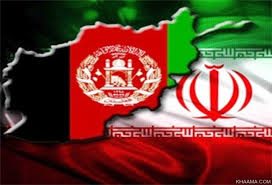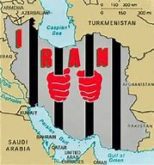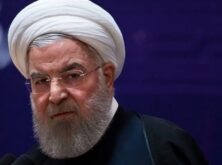iranintl – Iranian and Taliban officials have discussed potential “joint action” against Israel amid the war in Gaza and chances of a war between the Lebanese Hezbollah and Israel escalating.
During a Monday phone call, Ali Bagheri Kani and Amir Khan Muttaqi, the respective Foreign Ministers of Iran and the Taliban, underscored the imperative of unified Islamic efforts to exert pressure on Israel, particularly through the Organisation of Islamic Cooperation.
Iran’s ambassador in Kabul recently declared that “martyrdom” forces from the Taliban would also be dispatched to Gaza, where Iran-backed Hamas is fighting Israel, if necessary. This is while Israeli forces control the borders of the strip.
Despite Iran seeking the Taliban’s support in the event of further escalation, Aminullah Habibi, a senior international relations analyst, indicated to Afghan International that while Iran might sway some Afghans, the Taliban as a cohesive entity is unlikely to engage in a war against Israel.
However, Iran has been funding the Taliban to support its fight against the US, as disclosed by former US Defense Department adviser Carter Malkasian, who revealed that since 2012, Iran has given annually funding in the region of $100 million.
The relationship between Iran and the Taliban has been fraught with tension, primarily due to water rights and border security issues. The Helmand River, crucial for Iran’s eastern provinces, has been a major point of contention. Iran accuses Afghanistan of violating the 1973 Helmand River Treaty by restricting the river’s flow, impacting agriculture and drinking water. In May last year, late Iranian President Ebrahim Raisi warned the Taliban about disregarding Iran’s water rights, but the Taliban dismissed the threat mocking him, leading to heightened tensions and fatal border clashes.
The poorly demarcated Iran-Afghanistan border has also become a hotspot for smuggling, illegal crossings, and skirmishes. The Taliban’s resurgence has exacerbated such issues, with frequent incidents of violence and mutual accusations.
Adding to these challenges is the influx of Afghan refugees into Iran following the Taliban’s takeover has strained Iran’s resources and infrastructure, heightening security concerns.
Since October 7, Iran’s proxies in Syria, Yemen, Iraq and Lebanon have been attacking the Jewish state in allegiance with Hamas. On the deadliest single day for Jews since the Holocaust, over 3,000 Hamas forces invaded Israel killing 1,200 mostly civilians and taking another 251 hostage.
Since then, in allegiance with Hamas, Hezbollah has launched over 3,300 projectiles towards Israel with around 200,000 people displaced both on Lebanon’s southern border and in Israel’s north.
Israeli political and military chiefs have declared that measures are now in place should a war in Lebanon be authorized, as tensions between the two nations are the worst since the second Lebanon war.
Recent warnings from US officials cautioned Israel against a “limited” or “regional” war in Lebanon, highlighting the risk of uncontrollable escalation and potential Iranian intervention.
 Shabtabnews In this dark night, I have lost my way – Arise from a corner, oh you the star of guidance.
Shabtabnews In this dark night, I have lost my way – Arise from a corner, oh you the star of guidance.



